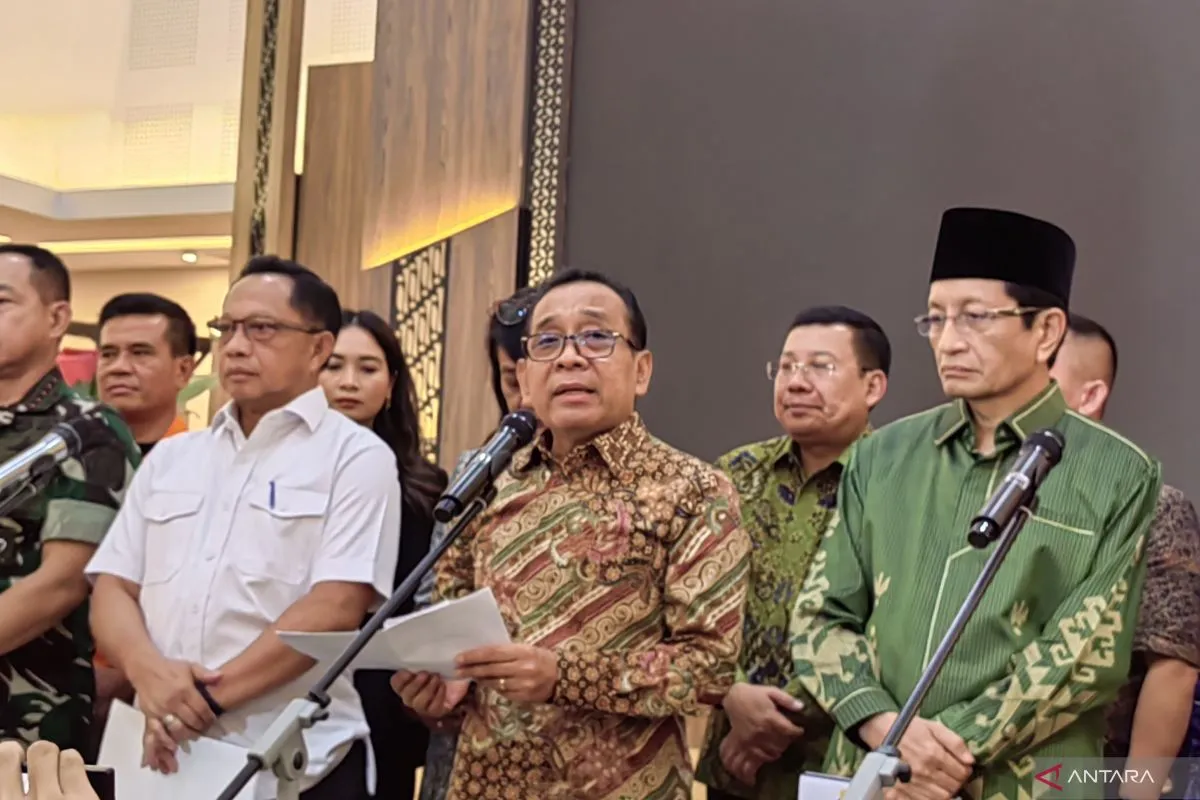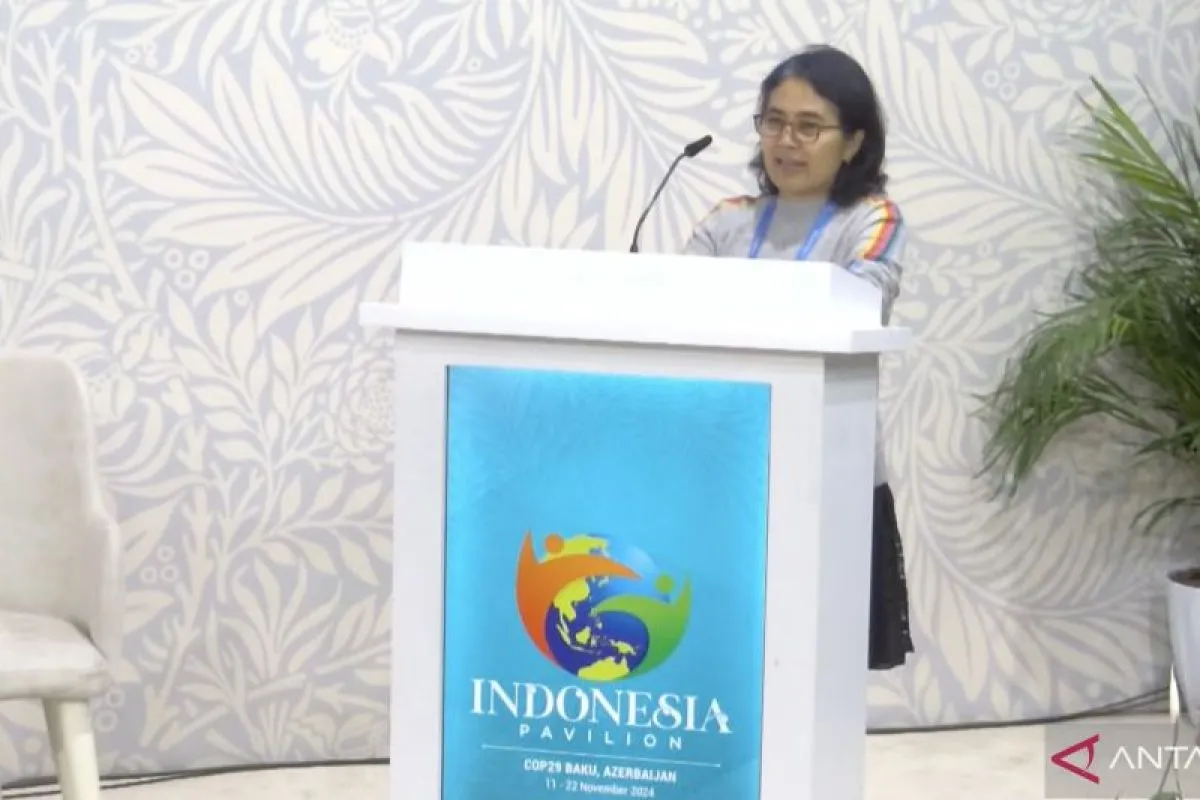Live Streaming
Program Highlight
Company Profile

Ahmad Faisal
November

Soldiers from the Indonesian National Army's Mechanized Battalion Task Force (Yonmek) Garuda Indobatt Contingent XXIII-R/UNIFIL clear debris from the road to open a logistics distribution route in South Lebanon. (11/4/2024). ANTARA/HO-Penerangan Satgas Yonmek TNI Konga XXIII-R/UNIFIL.
VOI News, Jakarta: The Foreign Ministry has emphasized that Indonesia will not withdraw Indonesian Defense Forces personnel from the United Nations Interim Force in Lebanon (UNIFIL), and they will continue to carry out their duties.
"Indonesia's peacekeeping forces continue to carry out their duties based on the direction of the UNIFIL Force Commander while ensuring their safety and security," spokesperson of the ministry, Rolliansyah Soemirat said in a written statement released in Jakarta on Friday.
As reported by Antara News Agency (22/11), he stressed that Indonesia remains committed to supporting the UN Peacekeeping Mission (MPP) in southern Lebanon, which is in keeping with the mandate of the Constitution.
Indonesia, he said, is still the largest troop-contributing country to UNIFIL, with a total of 1,230 personnel.
Indonesia's commitment to continue serving in UNIFIL is in line with the UN's decision to keep peacekeeping troops in Lebanon, he added.
"The Indonesian government continues to communicate and coordinate with various parties to ensure the safety and security of its personnel in Lebanon," he said.
Soemirat also assured that TNI personnel in UNIFIL are still safe and healthy.
Earlier, Argentina became the first country to withdraw its troops from UNIFIL, citing safety concerns. The country had sent four personnel to UNIFIL.
The withdrawal of personnel from UNIFIL is the prerogative of each country, the UN Under-Secretary-General for Peace Operations, Jean-Pierre Lacroix, said on Tuesday.
Meanwhile, President Prabowo Subianto, during his meeting with UN Secretary-General Antonio Guterres on the sidelines of the G20 Summit in Brazil on Sunday, reiterated Indonesia's commitment to continue supporting the strengthening of UN peacekeeping forces.
"The need for peacekeeping forces, we are ready to provide troops," Prabowo said, adding that Indonesia is ready to send peacekeeping forces to Palestine if needed.
November
Indonesian Minister Pratikno to discuss proposal to end school zoning with Mu'ti

Coordinating Minister for Human Development and Culture, Pratikno (center), issuing a press statement in Jakarta on Friday (November 22, 2024). (ANTARA/Asep Firmansyah/rst)
VOI News, Jakarta: Coordinating Minister for Human Development and Culture Pratikno will discuss the proposal to eliminate the school zoning system with Minister of Primary and Secondary Education, Abdul Mu'ti.
"We have not discussed it and will confirm it with Minister Mu'ti," Pratikno said on Friday as reported by Antara News Agency (22/11).
Earlier, Vice President Gibran Rakabuming Raka has asked Minister Mu'ti to eliminate the school zoning system in new student admissions (PPDB).
"During a meeting with the heads of education services, I stated to the Minister of Education regarding the elimination of the zoning system,"he said.
According to him, education is key for building a golden generation and Golden Indonesia 2045, therefore it is important to provide conveniences in accessing education.
Pratikno said he had heard the proposal from the vice president, and it is being processed by the minister of primary and secondary education.
Meanwhile, Commission X of the Indonesian House of Representatives (DPR RI) said that the elimination of the school zoning system in PPDB must consider the aspirations conveyed by the community to the government so that it has a positive impact on the education sector.
"We should listen to the opinions of the public and stakeholders by inviting stakeholders, including Minister Mu'ti, education services, teachers, parents, and education observers, to discuss the effectiveness of zoning and public complaints," Commission X chair Hetifah Sjaifudian said.
Besides gathering opinions, the impact of the PPDB zoning system must be studied first, including conducting an in-depth evaluation of its positive and negative impacts since the system was implemented, she added.
According to her, the zoning system in PPDB is aimed at providing closer access to education, reducing disparities in school quality, and preventing discrimination in education.
However, Sjaifudian agreed that the system has its own flaws, such as the unpreparedness of educational facilities in various regions and disparities in quality between schools.
November

Screenshot - Environment Ministry's Director of Climate Change Mitigation Yulia Suryanti delivers a statement during a discussion at the Indonesian Pavilion of the 29th UN Climate Change Conference (COP29) in Baku, Azerbaijan, on Friday (Nov 15, 2024). (ANTARA/Prisca Triferna)
VOI News, Jakarta: Climate Change Mitigation Director at Indonesia's Environment Ministry, Yulia Suryanti, emphasized that her nation recognizes the maritime sector's crucial role in combating climate change, particularly given the substantial blue carbon potential within Indonesia's marine ecosystems.
"It is very important to identify the negative impacts of climate change on the sea and coastal ecosystems and limit their impacts through emission reductions, adaptation, as well as continuing to conduct research and effective marine management," she stated during a discussion at the Indonesian Pavilion of the 29th UN Climate Change Conference (COP29) Azerbaijan on Friday as quoted by Antara News Agency (15/11/2024).
She remarked that climate change adaptation and mitigation steps in the marine sector and coastal ecosystems are deemed necessary, considering that both have an important role as a source of life for the surrounding communities.
Given Indonesia's plan to incorporate the maritime sector into the second Nationally Determined Contribution (NDC) to be issued next year, addressing climate adaptation and mitigation strategies for the marine sector and coastal ecosystems has become increasingly critical.
Suryanti referred to the 2015 Paris Agreement and the Katowice Climate Package as the result of the COP24 in Poland in 2018, which emphasized important elements in mitigation measures in the NDC and the role of coastal ecosystem conservation and restoration efforts related to bitumen carbon.
The role of the marine sector in handling climate change has shown progress since COP25 in Madrid, Spain, in 2019, which mandated discussion on the issue and was implemented in 2020.
"During Indonesia's G20 Presidency in 2022, priority issues in our sustainable climate working group discussed land-based and ocean-based actions to support environmental protection and address climate change," Suryanti remarked.
She said that various steps to raise the issue of the sea and coastal ecosystems showed Indonesia's focus on the marine sector in tackling climate change and supporting the inclusion of the sector in climate targets and long-term strategies.
In addition, Indonesia recognizes the ocean's role in regulating the mechanism of carbon economic value as stated in Presidential Regulation No. 98 of 2021 concerning the Implementation of Carbon Economic Value for the Achievement of Nationally Determined Contribution Targets and Control of Greenhouse Gas Emissions in National Development.
"It shows that the ocean sector is one of the potential sectors in the mitigation element and not only adaptation, which was mentioned in our first NDC in 2016," she concluded.
November

Law Minister Supratman Andi Agtas (right) with the British Ambassador to Indonesia, Dominic Jermey, in Jakarta on Thursday (November 14, 2024). (ANTARA/HO-Law Ministry/rst)
VOI News, Jakarta: Law Minister Supratman Andi Agtas explored the potential to strengthen legal cooperation with the British Ambassador to Indonesia, Dominic Jermey, during a meeting on Thursday.
As quoted by Antara News Agency on Friday (15/11/2024), both agreed to strengthen bilateral cooperation in the legal field, especially in terms of corruption eradication, law enforcement, intellectual property protection, and human resources development in the legal sector.
"Some of our priorities include the plan to implement the new Criminal Code (KUHP), intellectual property protection, and bureaucratic reform in the legal field," the minister informed in a statement issued by his office on Friday.
Meanwhile, Ambassador Jermey welcomed Indonesia's initiative to reform the legal system and offered cooperation in fields such as the criminal legal system, democracy, and child protection.
"We are open to exchanging ideas on the criminal legal system and democracy perspectives," Jermey said in the statement.
He also drew attention to the death penalty policy implemented in Indonesia, especially for foreign nationals involved in serious crimes.
According to him, both countries should maintain communication in handling such cases to ensure a fair process based on human rights standards.
There must be room for further dialogue regarding the implementation of the death penalty, especially in the case of British citizens facing such a sentence, he added.
At the end of the meeting, he expressed support for Indonesia's efforts to become a member of the Organisation for Economic Co-operation and Development (OECD).
OECD is an international organization headquartered in Paris, France. It was founded in 1961 to encourage global economic and trade progress.
Responding to Ambassador Jermey's request, Agtas said that the death penalty policy in Indonesia will be implemented strictly based on applicable laws, including provisions in the new Criminal Code.
He added that the Indonesian government remains committed to consistent national law enforcement and expressed the hope that all countries will respect Indonesia's legal policies.
"The death penalty will be based on certain parameters regulated in the implementing law of the Criminal Code that is currently being drafted," he explained.

